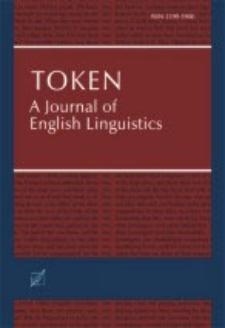Digital Library of the Jan Kochanowski University contains 13 083 digital objects
Object
Title: Assessing the validity of the mid-nineteenth-century literary portrayal of Southern American English in Fisher’s River (North Carolina) Scenes and Characters by “Skitt, who was raised thar”:A case of past tense be forms
Creator:
Group publication title:
Abstract:
The depiction of the vernacular of the Antebellum South in literature raises doubts regarding its faithfulness, and questions whether it may be used as a source of scientific data. This question stems from the fact that there is no certainty as to the extent authors wanted to replicate the actual vernacular of the time and the extent to which this replication was a result of literary creativity. This research investigates the literary dialect representation in Hardin E. Taliaferro’s 1859 work Fisher’s River (North Carolina) Scenes and Characters by “Skitt, who was raised thar”. More specifically, we examine his usage of past tense be forms. Instances of was and were found in the book are verified against real written records extracted from an online database Private Voices: The Corpus of American Civil War Letters. The research concludes that while in Fisher’s River we might observe a pattern where the allomorph were dominates in the singular and most plausibly in the plural, the data from letters selected from Private Voices present a different picture. In the authentic correspondence, leveling to was is by far the dominant variant form. Based on these findings we draw cautious conclusions and call for further studies based on works of other local colorist and authentic documents from the beginning of the nineteenth century.
Place of publishing:
Physical description:
ISSN:
Publisher:
Wydawnictwo Uniwersytetu Jana Kochanowskiego w Kielcach
Date issued:
Identifier:
oai:bibliotekacyfrowa.ujk.edu.pl:8014 doi:10.25951/4890
Language:
Is part of:
Token : A Journal of English Linguistics
Has part:
Type:
Access rights:
Format:
Object collections:
- JKU Digital Library > University Publishing
- JKU Digital Library > University Publishing > Serial publications
- JKU Digital Library > University Publishing > Serial publications > "Token : A Journal of English Linguistics"
Last modified:
Apr 4, 2025
In our library since:
Feb 13, 2023
Number of object content hits:
37
All available object's versions:
https://bibliotekacyfrowa.ujk.edu.pl/publication/4890

